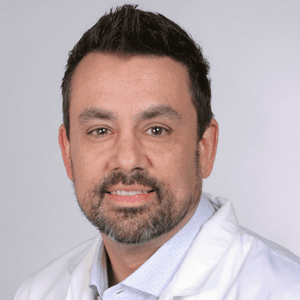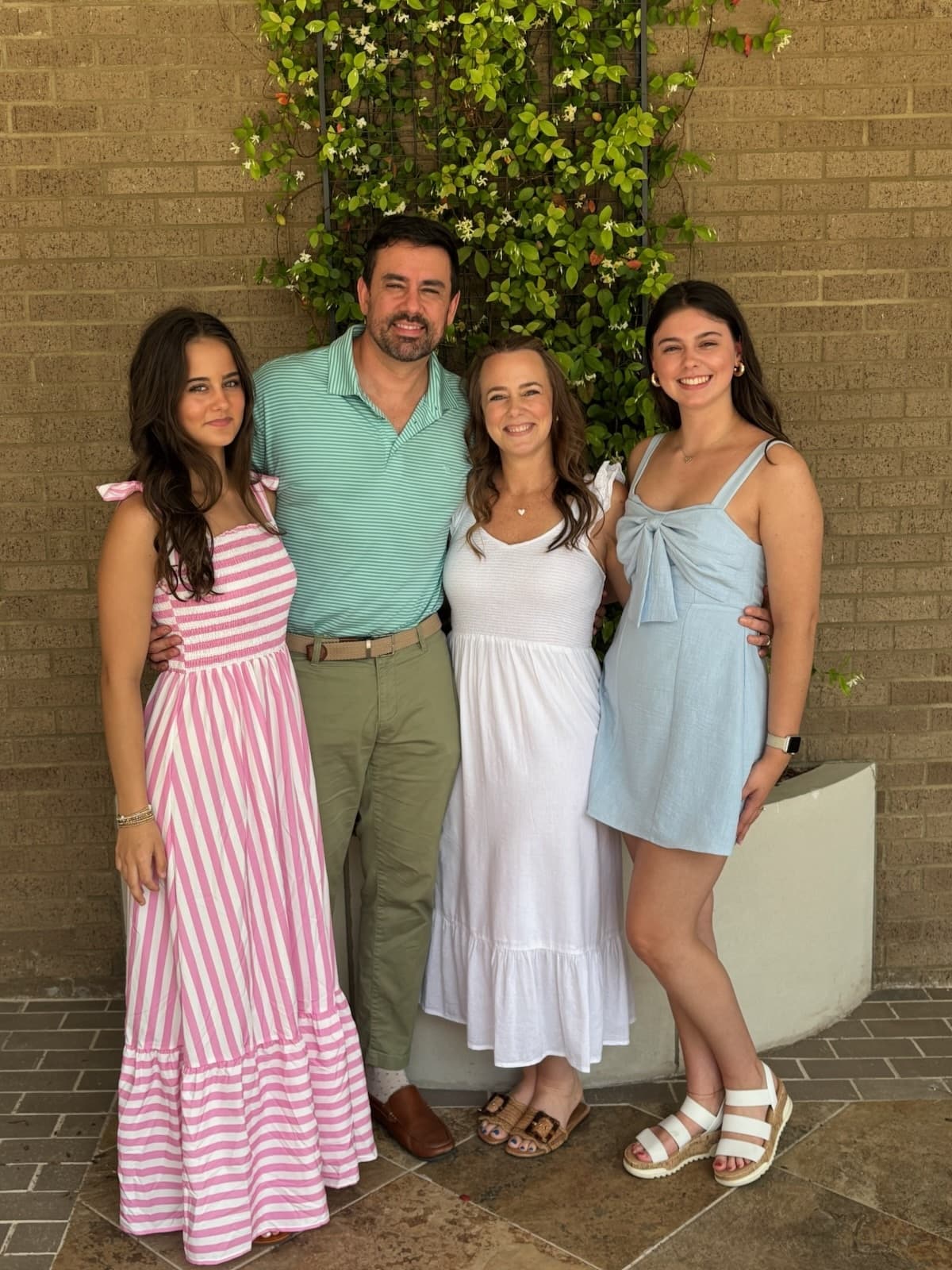Jarrod Barnes, PhD, MBA
Associate Professor of Medicine
Associate Director of Research
Division of Pulmonary, Allergy and Critical Care Medicine
Chair, DREAM Council, Department of Medicine
University of Alabama at Birmingham
Co-Chair, ATS PhD Basic and Translational Science Working Group

Three statements about you – two true, one false.
- I have had science conferences in Hawaii and Italy in the same year.
- Stung over 40 times by hornets and lived to tell the story.
- I enjoy tinkering and doing my own mechanic work.
Give us your ‘elevator pitch’ biography.
I grew up in a small town in north Georgia, where my graduating high school class had only about 85 students. Despite the size of our class, many of us harbored big dreams. I was proud to be the first person in my family to attend college, and eventually, to earn a PhD in biochemistry and molecular biology from the University of Georgia (UGA). It was at UGA that I discovered my true passion for science and developed a deep love for glycobiology – specifically studying the role of glycans in human disease at the Complex Carbohydrate Research Center (CCRC). A pivotal decision in my career was choosing to pursue a postdoctoral fellowship at the Cleveland Clinic. The interdisciplinary approach there – where MDs and PhDs collaborated to tackle complex disease questions – was invaluable. The culture of learning and collaborative growth in Cleveland remains a highlight of my career.
During my postdoc, I was honored to receive my first NIH funding through the Ruth L. Kirschstein F32 Postdoctoral Research Award. This early support laid the foundation for my K99/R00 Pathway to Independence Award, which helped propel my independent research career. I was recruited to the University of Alabama at Birmingham (UAB) in 2017, where I currently serve as an Associate Professor in the Division of Pulmonary, Allergy, and Critical Care Medicine within the Department of Medicine. Since arriving, I have established a robust independent research program investigating the role of glycosylation in lung diseases such as pulmonary arterial hypertension, idiopathic pulmonary fibrosis, COPD, and cystic fibrosis.
Beyond the lab, I am proud to serve as Chair of the DREAM Council at UAB’s Department of Medicine – an initiative dedicated to enhancing mentorship, supporting junior faculty development, fostering team science, and recognizing research excellence. I also co-chair the American Thoracic Society’s PhD and Basic and Translational Scientist Working Group, where I help lead strategic efforts to elevate translational research, improve mentorship, and bridge gaps between basic scientists and clinician-investigators. All these roles serve a greater purpose for me: to build a lasting scientific legacy, to empower the next generation of scientists, and to be a strong voice advocating for research.
What would you tell yourself as an Early Career Professional?
Build strong relationships and allow yourself to take risks. Take to heart the advice of those you trust, but do not forget about your own instincts. Your journey will be shaped by your interests and passions, which will naturally come to the forefront if you let them. Maintain a positive attitude and surround yourself with positive people who share similar goals.
If you weren’t in medicine, and were in a different industry altogether, what would you be?
I have always wanted to own a restaurant and beat Bobby Flay. My signature dish would be the Barnes Hamburger Scramblers (if you see me around ask me about them, they are outstanding).

What is your favorite way to spend a day off?
Weirdly enough, I enjoy any type of physical activity on my day off. From yardwork to running, I work outside all day until I’m completely exhausted. For some reason, crazy activities center me.
What areas of medicine are you most excited to see develop?
Now more than ever, we need to come together as physicians and scientists to promote the fascinating and innovative research that is actively shaping our field. As we witness groundbreaking advances in areas such as gene editing, RNA-based therapies, and mucosal immunobiology, there's an increasing emphasis to effectively translate discoveries in these areas into clinical practice. I’m particularly excited to see the so-called "translational gap" – or, more pointedly, the "valley of death" – begin to close, as discovery science and implementation research converge. I’m proud to be part of a growing workforce committed to this dual mission: advancing innovation at the bench while ensuring it reaches the bedside to improve patient care on a meaningful scale.
What is one advancement in your field you’d like to see in your career?
My work as a research scientist is focused on the advancement of innovative basic and translational science, with a strong emphasis on its integration into clinical practice. Too often, basic research is perceived as disconnected from patient care. I believe we must actively challenge this view and instead elevate basic science as the engine that drives clinical innovation and therapeutic breakthroughs. Foundational basic research discoveries in immunology, gene editing, and RNA biology are the very reason we have immunotherapies, mRNA vaccines, and curative interventions today. My goal is to help educate the public on the importance of basic research not as a step removed from clinical progress, but as THE essential starting point – where deep curiosity and mechanistic insight lay the groundwork for the future of medicine.
Which statement (in question #2) was false?
I have had science conferences in Hawaii and Italy in the same year (I have been to both, but not in the same year).